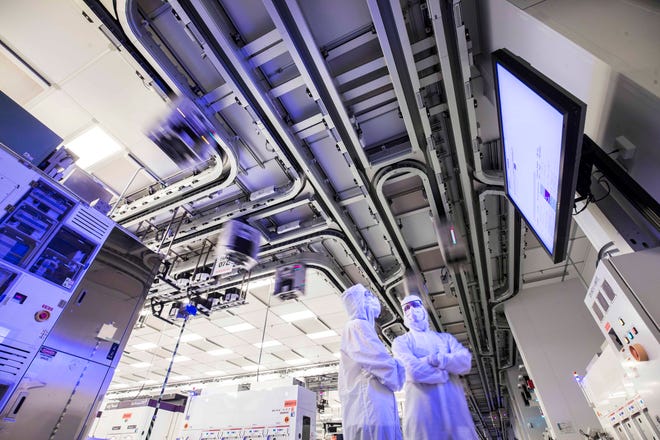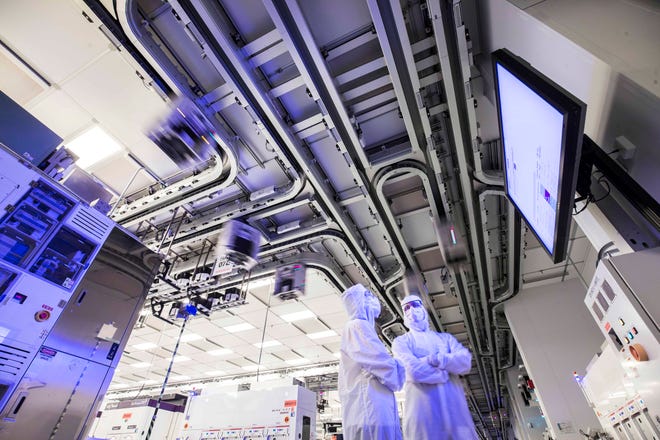After nearly two years of a global shortage of semiconductor chips that crippled the production of new cars across the industry, General Motors has locked down exclusive production of a significant portion of the chips it will need for future cars.
GM and GlobalFoundries, a global semiconductor chipmaker, announced Thursday a long-term agreement where GF will manufacture the key components of the chips, including the semiconductor wafer. This wafer will be sent to a semiconductor chip supplier, who will complete the finished chip. That chip goes to a parts supplier, such as brake maker Bosch, which puts it into an electronic braking system that is then sent to GM for its vehicles.
The chip components will be manufactured in the United States at GF’s advanced semiconductor facility in Malta, New York, which is about 25 miles north of Albany.

“This long-term agreement helps us establish a dedicated supply of semiconductor chips going forward,” said GM spokesman Dan Flores.
Flores declined to provide details on the length of the deal or the finances.
GF CEO Thomas Caulfield said the company will expand its production exclusively for GM’s supply chain, allowing GF to strengthen its partnership with the automotive industry and “accelerate the innovation of the ‘automotive with US-based manufacturing for a more resilient supply chain.’
Month:GM to invest $650 million in US lithium mining company
Month:GM Salaried Workers Should Expect Smaller Bonuses: How the Formula Works
Semiconductor chips, used in a variety of auto parts, are the foundation of the technologies powering electrification and autonomous driving. GM will launch 30 new electric vehicles worldwide in the next two years. Chips became scarce after demand for laptops and small electronics soared during the pandemic.
GM said this agreement with GF reflects the automaker’s strategy to reduce the number of unique chips needed to power increasingly complex and technology-laden vehicles, which GM President Mark Reuss envisioned in 2021 At the time, Reuss said GM was working on seven chips. suppliers of new chip designs that would be capable of handling more than current chips and would be manufactured in North America, the strategy will allow the chips to be produced in higher volumes and offer better quality.
“We see our semiconductor requirements more than doubling over the next few years as vehicles become technology platforms,” said Doug Parks, GM’s executive vice president of Global Product Development, Purchasing and Supply Chain, in a statement “The supply agreement with GlobalFoundries will help establish a strong and resilient supply of critical technology in the US that will help GM meet this demand.”
Contact Jamie L. LaReau: jlareau@freepress.com. Follow her on Twitter @jlareauan. Read more about General Motors and sign up for our automotive newsletter.


